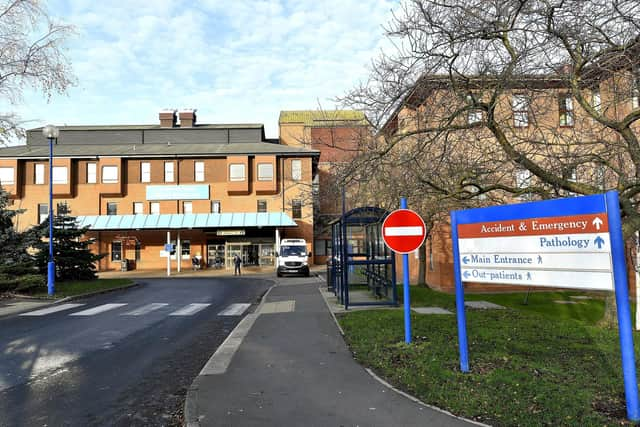Nurse staffing levels 'easier to cover' during strikes in Scarborough than York, says NHS Trust
and live on Freeview channel 276
A senior nurse has said that it was “much easier” to deploy staff at Scarborough Hospital than it was at York Hospital during the two days of industrial action by nurses between January 18 and 19.
Members of the Royal College of Nursing (RCN) at the York and Scarborough Teaching Hospitals NHS Foundation Trust walked out for two days as part of a national pay dispute between nurses and the Government.
Advertisement
Hide AdAdvertisement
Hide AdSpeaking at a meeting of the NHS Trust’s board meeting on Wednesday January 25, Heather McNair, chief nurse, said: “In Scarborough, it was much easier to deploy staff because, for the industrial action, we were allowed night staffing levels for the day.


“So, because Scarborough had quite a lot of investment then, and staffing levels are significantly higher than York, so when you deployed that during the day, the day shifts were OK.”
She added: “In York, the staffing levels probably had two registered nurses (RN) on average on a ward. So for day staffing levels that is two RNs short.”
Further strike dates have been announced for February 6 and 7 by the RCN, with nurses at 73 NHS trusts in England now set to take part, compared with 55 in January.
Advertisement
Hide AdAdvertisement
Hide AdThe RCN is calling for a pay rise of 19 per cent as it says that since 2010 nurses have faced a real terms pay cut of up to 20 per cent
However, the Government has stated that the claim is unaffordable and has stood by the recommendations of the independent pay review body which offered an increase of £1,400.
Speaking at the board meeting, Simon Morritt, the Trust’s chief executive, said: “We have got two further days of action in February.
“I suppose the one thing to highlight is that we did cancel quite a bit of activity in the December days and worked very well with the RCN team locally.
Advertisement
Hide AdAdvertisement
Hide Ad“I am going to suggest that we are a little more cautious this time around in terms of what we will and what we won’t cancel.
“I think in conversations with staff there probably were opportunities to keep some of our planned work going, so that will be in our mind as we sit down to plan February 6 and 7.”
Mr Morritt added: “Other than that, I think we managed it well in terms of our response to the industrial action, certainly got quite a few plaudits from the RCN for our relationship with them.”
While the February strikes are currently set to go ahead, the RCN has indicated it would be willing to call off the action.
RCN general secretary and chief executive Pat Cullen said: “My olive branch to the Government – asking them to meet me halfway and begin negotiations – is still there. They should grab it.”